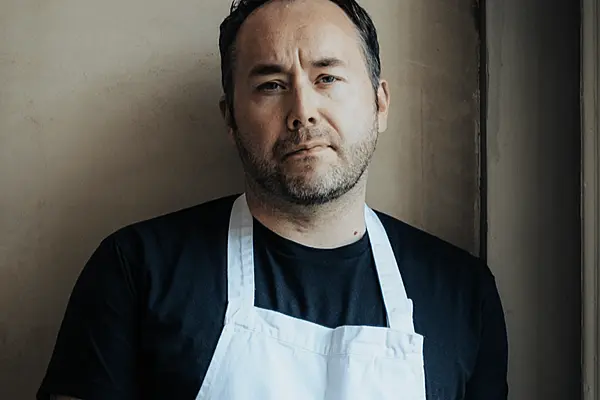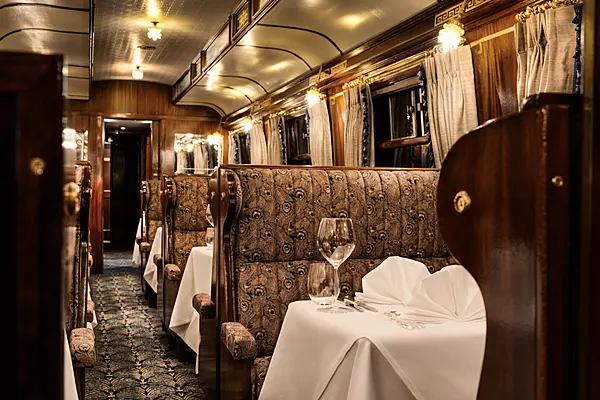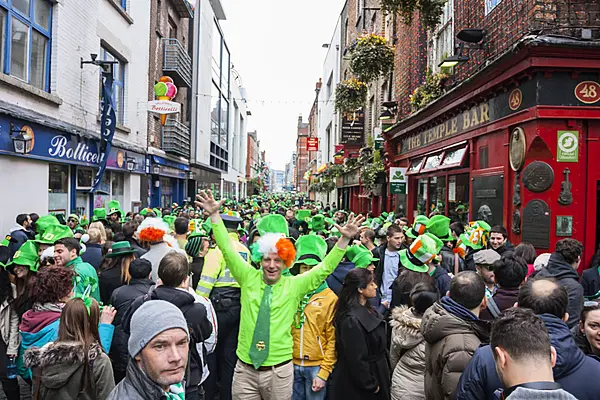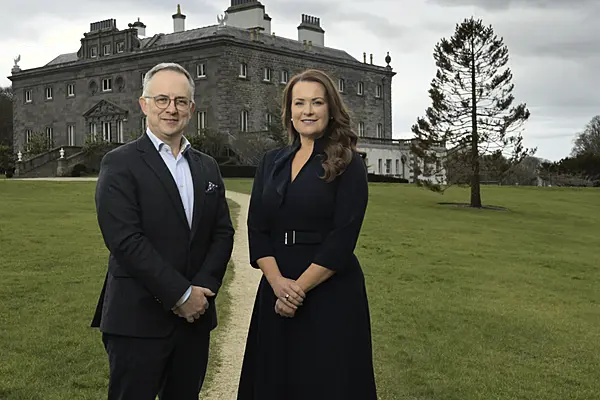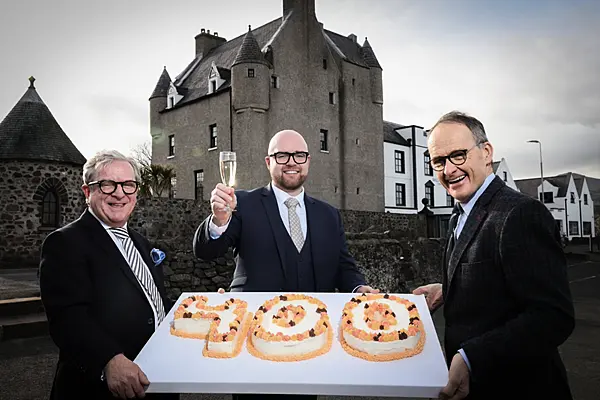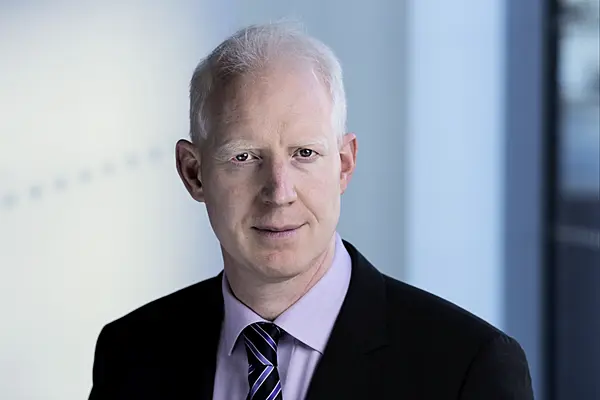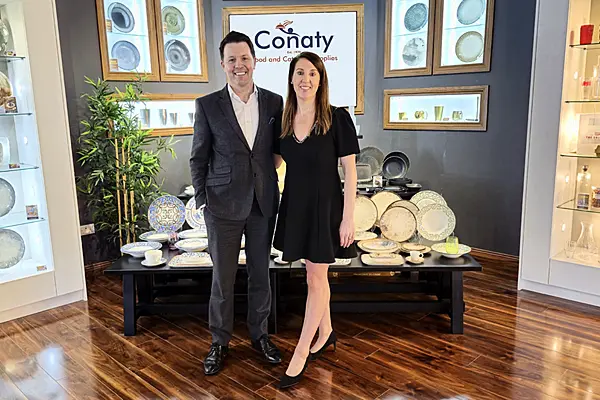Stuart Ralston is the chef-owner of four iconic Edinburgh restaurants: Aizle, Noto, Tipo and Lyla. Since opening his first – Aizle – in 2015, Ralston has earned himself a legion of fans, both in the Scottish capital and further afield.
Now with four concept restaurants to his name, each unique in its influence, he has established himself as one of the country’s most ambitious and intriguing culinary talents. Here he talks to Hospitality Ireland.
This article was originally published in the Autumn 2024 issue of Hospitality Ireland Magazine, in October of 2024.
Stuart, please tell us about your background.
When I was 13, I went to work for my father, who was an executive chef for a group of hotels. I started as a kitchen porter, worked my way up to being a chef de partie by the time I was 17, then moved around a few three-rosette and Michelin-star properties around Scotland, but left at 22, to move to New York City, to work for Gordon Ramsay, where we got two Michelin stars.
I worked and lived in New York City for five and a half years, then moved to a Relais & Châteaux property in the Cotswolds, followed by a move to Barbados, to be the chef de cuisine for Sandy Lane. I then came back home to Scotland to launch my own restaurant, Aizle, and now we have four properties in total
What formative moments can you remember that decided your path?
Certainly moving to New York City changed my life and my path. I grew as a person, as well as a chef. Being able to absorb so much of my twenties in New York City shaped me to view food the way I do, and the skill sets I learnt, I believe, I could have only got there at that time.
When did you first realise that you wanted to do this professionally?
Around 16 years old. I had been working for my father for a few years, and I enjoyed the lifestyle. It gave me purpose, I enjoyed being around older people, the nightlife, and having money in my pocket. Me and my brother were both put to work as kitchen porters at 13, and I just came to like the lifestyle.
Being in restaurants late at night with other adults just felt exciting, so I stuck with it. My father told me if I wanted to do it properly, I should leave working with him and get into the highest accolades’ establishments – then I could take it more seriously.
What was your first big role?
Hard to say what defines a big role. Leaving home to go work in a three-rosette kitchen at 17 was big for me. It was hard to live away and hard to learn a proper standard, but, equally, the job opportunity at Gordon Ramsay in New York City has always felt like a huge change for me.
What was that like?
Moving to New York City was also very hard. I was 22, from rural Scotland, and had no money and didn’t know anyone in the city.
It was a huge time for me to get comfortable in my own skin, become more confident going out by myself and keeping myself company until I made friends, but, ultimately, it gave me the confidence to do anything. Nothing has ever felt as challenging as that.
As your debut restaurant, Aizle, celebrates ten years, what made you take the leap to owning and running your own restaurant(s)?
I think my opinions and attitude were becoming more and more polarised. I didn’t want to listen to other people tell me how to do things. I didn’t always agree with how others had done it.
At that point, I felt ready to go it alone, and it became my obsession to make a success of it.
What was the jump from one to four restaurants like?
It’s been organic, which has been nice over ten years. The growth has always been fuelled by the people around us, such as Jade Johnstone, group operations manager, creating growth for everyone to have a long career path with us, and also for us to be prominent in the city with our visions for restaurants.
At times, it’s been hard – the lessons have been tough to learn about business – but I am determined to create a legacy restaurant group that stands the test of time and is always about quality.
Please tell us about your restaurants–the ethos, food, service, etc.–and how they differ.
Lyla is our newest and flagship restaurant, showcasing Scottish seafood, mainly, but not limited to it. It’s an experience over two floors, and I cook here.
Aizle is my original idea and has lasted ten years. It’s slightly more rebellious, very creative, and now is headed up by a brilliant team of young, energetic industry professionals.
Noto is a really cool neighbourhood restaurant. It’s the place that I’d want to go if I was hungry. It’s friendly, low key, but delivers a creative casual experience.
Tipo is our take on a more traditional, slightly Italian restaurant that focuses on handmade pasta and natural wines – also a very cool , light, airy, really beautiful place to get a really affordable but quality meal.
What makes a great restaurant?
I, personally, think it’s about a few things: how you are treated and made to feel, a sense of value, somewhere that does the basics right – e.g. room-temperature butter with your bread, and not straight from the fridge – somewhere that lasts in your memory for the right reasons.
What are the changing trends in hospitality that you’ve noticed in the decade since you became a restaurateur – people’s expectations, new elements, etc.?
I think I have seen a huge interest in products, huge interest in how staff are treated, the rise of the review sites, and how dietary requirements are such a huge part of the day-to-day.
What are the major challenges at the moment?
Mainly, all my challenges are financial: the challenge to create restaurants of quality that give value at a certain price point, where the staff are treated well, paid well, have great conditions, and that turn a profit that can keep us in business, year to year.
VAT isn’t helping small restaurants. I believe our industry needs a different financial plan from the government to keep us providing for both guests and employees.
How have the years that you spent abroad, earlier in your career, influenced your restaurants?
The time I spent away made me more aware of the world – good and bad wealth disparity, working with people from all over the world, how to look at things in a more rounded way, which, in turn, made me a better chef and all-round better person.
I certainly have never been perfect, but I try and do my bit to make a better situation of where I am.
What do you do when you’re not working?
Well, naturally, I work a lot, but, in my downtime, I play five-a-side football every week – even at 41, ha ha! – I go to the gym three to four times a week, I dedicate time off to my two little boy and try and be a father to them.
I am a keen Arsenal fan, love motorsport – pretty normal things!
Any other plans on the horizon for the next year?
Ideally, I’d like to see us continue to grow into more sites – different offerings, perhaps, different cities, even different countries.
I’d like our casual brands to be brands we could roll out more, so we will see ...
